Copco No. 1 goes boom. | Image by Swiftwater Films, courtesy KRRC.
###
Press release from the Klamath River Renewal Corporation:
Hornbrook, CA – Following Friday’s successful test blast, the Klamath River Renewal Corporation will proceed with the removal of the Copco No. 1 Dam, the second dam to be removed as a part of the Klamath dam removal project.
The Copco No. 1 Dam, constructed in 1918 for the sole purpose of hydroelectric power generation, has blocked fish passage for over 100 years and is expected to be fully removed by the end of August 2024.
“We are excited to get to work,” said Mark Bransom, CEO of the Renewal Corporation “with the initial phase of drawdown complete, the dam is fully exposed and can safely be disassembled.”
Copco No. 2, a diversion dam that was located just downstream of Copco No. 1, was removed last year. The remaining three dams, Copco No. 1, Iron Gate, and JC Boyle, created reservoirs that needed to be drawn down before removal could begin. The initial phase of drawdown concluded last month, and shortly thereafter FERC approved an advancement in the schedule, allowing for the removal of Copco No. 1 ahead of the other remaining dams.
Iron Gate and JC Boyle, which are clay core earthen dams, will remain at their full height until the spring runoff period has concluded and the Klamath River has returned to baseline flows. Work on their deconstruction will likely begin sometime in May, depending on precipitation.
Deconstruction of the Copco No.1 Dam, which will be performed through a repetitive cycle of drilling, blasting, and chipping, can begin before the spring runoff period has concluded because it is a concrete arch dam. So, should the Klamath River experience a significant flow event this spring, water could safely pass over the partially removed concrete dam and the dam would remain securely in place. The Copco No. 1 Dam removal plan was specifically designed to allow for this safe flow passing, should it occur.
The removal of Copco No. 1, Iron Gate, and JC Boyle Dams is expected to be complete sometime this fall, in time for the Fall run of Chinook salmon. The restoration of the former reservoir footprints is currently underway and will continue for several years until vegetation is successfully established and water clarity has returned to baseline conditions.
Photo by Shane Anderson.
The drawn-down reservoir behind Copco No. 1. Restoration is currently underway. | Photo: Swiftwater Films.
Backside of the Copco No. 1 dam after drawdown. | Photo: Swiftwater Films
Drawn-down reservoir looking upstream from Copco No. 1. | Photo: Swiftwater Films.
Photo: Swiftwater Films.
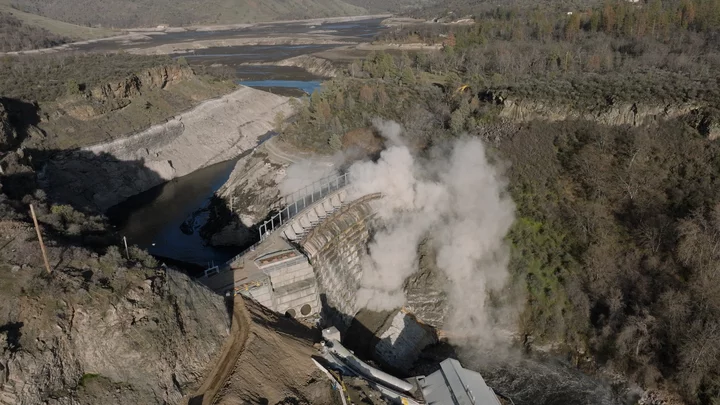
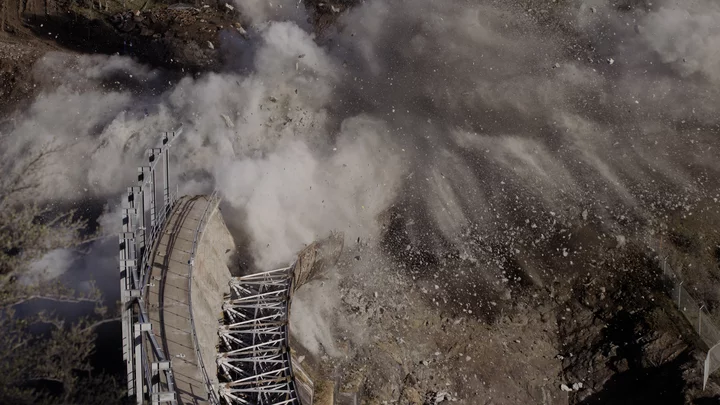
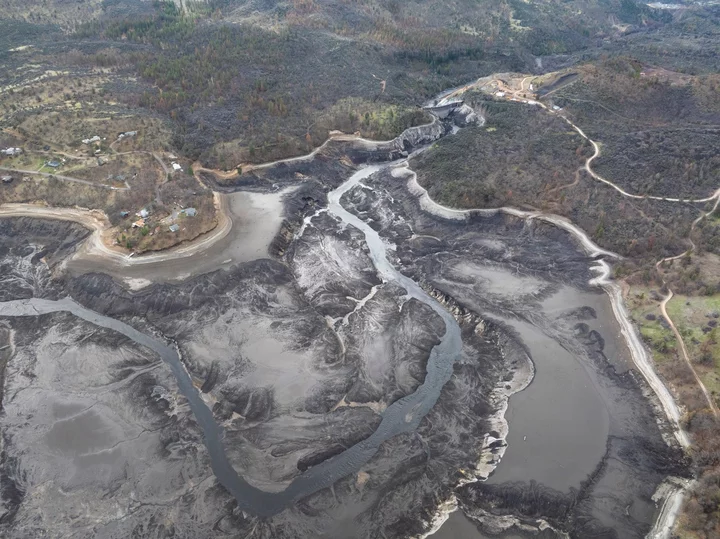
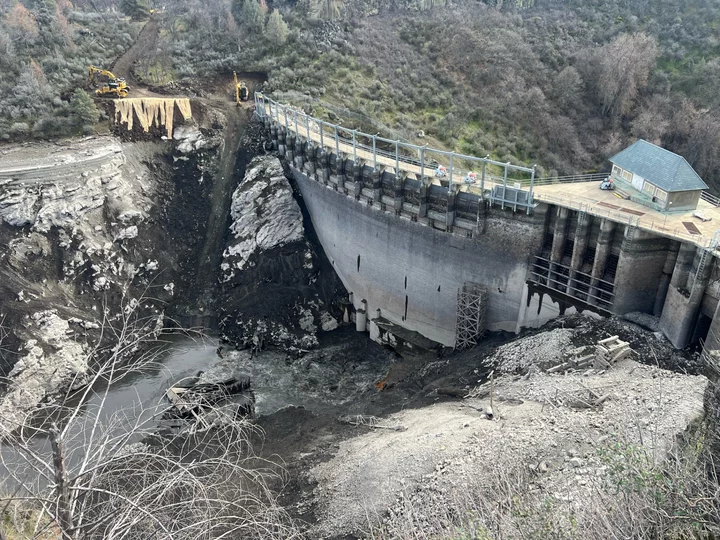
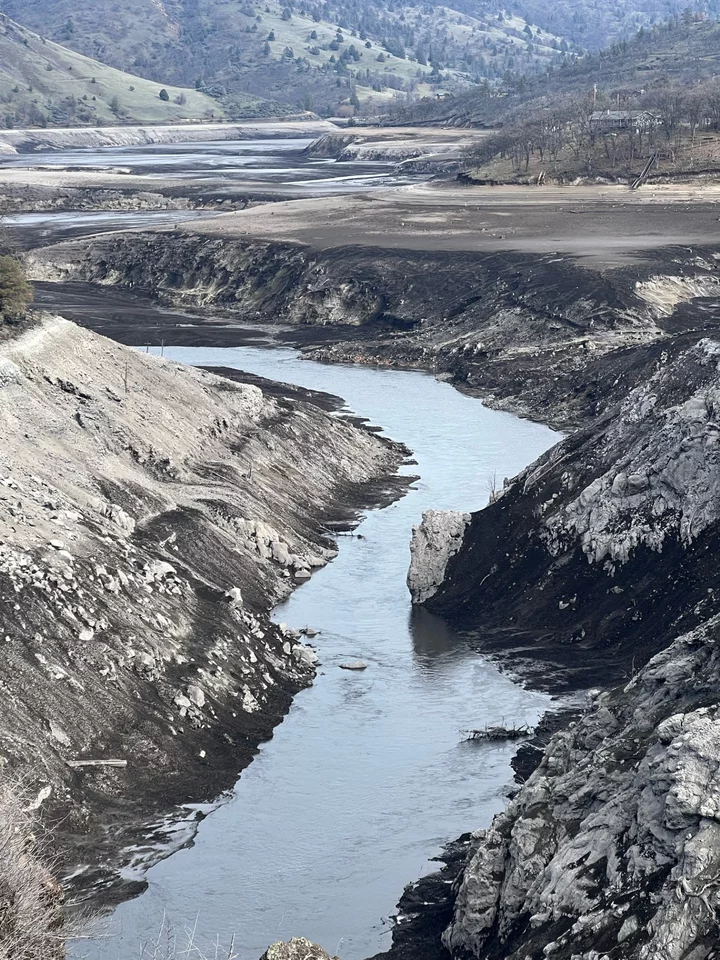
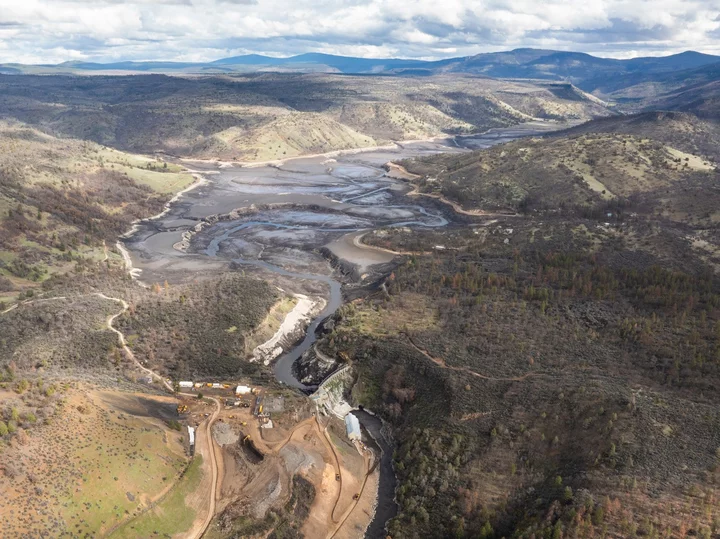
CLICK TO MANAGE